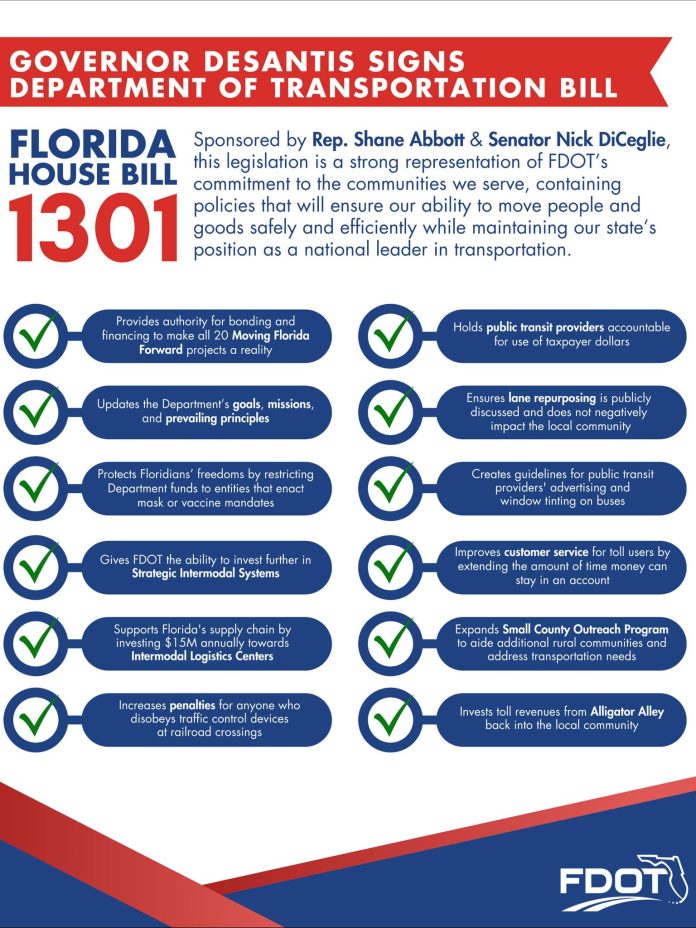Florida Construction News staff writer
In a move aimed at reducing traffic congestion and supporting infrastructure construction, the Florida Department of Transportation (FDOT), has unveiled plans to expedite several major road projects, speeding up construction timelines; with projects set to begin 10 to 20 years ahead of schedule.
Joined by transportation officials in Polk County, Gov. Ron DeSantis announced ambitious plans to widen crucial sections of Interstate 4 (I-4) in Osceola and Polk counties, as well as the expedited construction of the Poinciana Parkway Connector Project in Osceola County. These initiatives are poised to revolutionize transportation in Central Florida and beyond, significantly benefiting commuters, tourists, and freight traffic alike.
“Because of this approach, Florida’s major transportation upgrades are fully funded and ahead of schedule by decades,” he said.
Projects include widening of 14.7 miles of I-4 in Osceola and Polk counties, expanding the road from six to ten lanes and incorporating managed express lanes for long-distance travelers.
Also, all road shoulders will be widened and interchanges will be reworked to minimize congestion and queuing along ramps. Construction on these vital upgrades is slated to begin in the coming months, marking a significant acceleration of the original timeline.
The Poinciana Parkway Connector project, previously unfunded and estimated to begin no earlier than 2034, has been incorporated into the accelerated schedule. This critical project will fill a 2.6-mile roadway gap in Osceola County, connecting I-4, SR 429/Western Beltway, and the existing SR 538/Poinciana Parkway. With a phased approach, a portion of this project will commence alongside the I-4 upgrades later this year, with the remainder scheduled for 2028.
DeSantis also announced the signing of House Bill 1301 into law, which he said will ensure accountability and transparency within transportation agencies, prohibits the use of state funds for political messaging on transit vehicles, and allocates resources to support inland ports and intermodal logistics centers.







